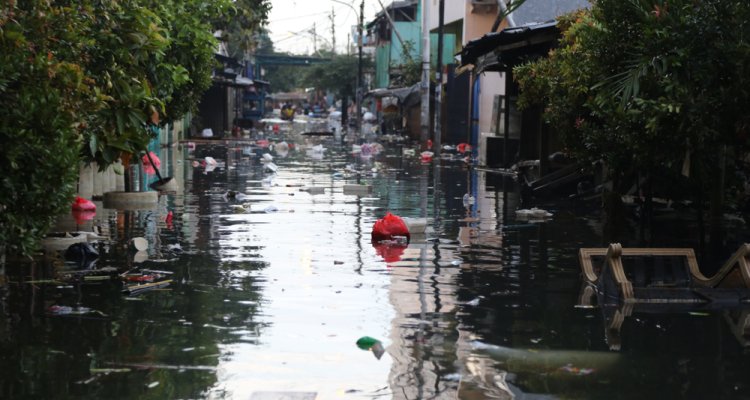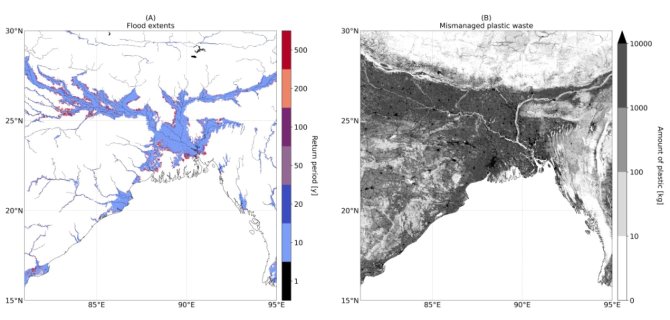
Heavy flooding can cause entire villages and cities to be covered by water. A new study by Wageningen University & Research in collaboration with ECMWF and VU Amsterdam, recently published in Environmental Research Letters, shows that these natural disasters mobilise huge amounts of waste. In some cases, the amount of plastic waste floating in rivers increased no less than forty times.
For their research, Caspar Roebroek, Tim van Emmerik (WUR) and fellow scientists from the European Centre for Medium-Range Weather Forecasts (ECMWF) and VU Amsterdam combined datasets on plastic waste and flooding across the world. These data, from the European Union's Copernicus Emergency Magament Service, among others, are open access. Their analysis shows that heavy and frequent flooding, in particular, mobilises enormous amounts of waste. Moreover, there are significant differences between countries. In some areas the amount of waste doubled while in other regions twenty to forty times the normal volume of waste ended up in rivers. Countries with heavily populated deltas such as Bangladesh, Vietnam and Egypt fall in the second category.
The researchers also took data on flood prevention measures into account, such as dykes and dams. This reveals that in areas with fewer prevention mechanisms, more plastic waste is displaced during floods. There is generally more unprocessed waste and more frequent flooding in those countries, causing a multiplier effect of exacerbating problems.

A relationship between natural disasters and waste had already been established in the past. In 2011, Japan was hit by a tsunami, resulting in a ten-fold increase in waste deposited on North American shores. However, not much research was done on this issue. According to Tim van Emmerik, a lecturer at the Hydrology and Quantitative Water Management group, this new research now shows that the influence of flooding rivers is not to be underestimated. ‘Current hypotheses are generally based on the assumption that waste is mobilised by rain and wind, or by people dumping waste directly into rivers. Our research shows that flooding may well be a determinant.’
How exactly floods cause plastic waste to be displaced is yet unclear. It has to do with the dynamics of floods and calls for further research. However, the results indicate that floods and other natural disasters merit more attention in strategies to mitigate the problem of waste in rivers. Moreover, the study underscores the value of dykes, dams and other flood protection mechanisms.
This research was carried out by Caspar Roebroek and Tim van Emmerik (WUR) in collaboration with the European Centre for Medium-Range Weather Forecasts (ECMWF) and VU Amsterdam.
Shaun Harrigan (ECMWF): 'This is the first time the role of floods in plastic mobilisation has been estimated at the global scale, and with the increasing availability and quality of large-scale open flood datasets, further scientific innovation is now possible.'
Dirk Eilander (VU): 'Most flood impact studies focus on the direct impacts to buildings and people, but this research shows that other impacts such as the mobilization of waste should not be ignored when designing flood adaptation strategies.'